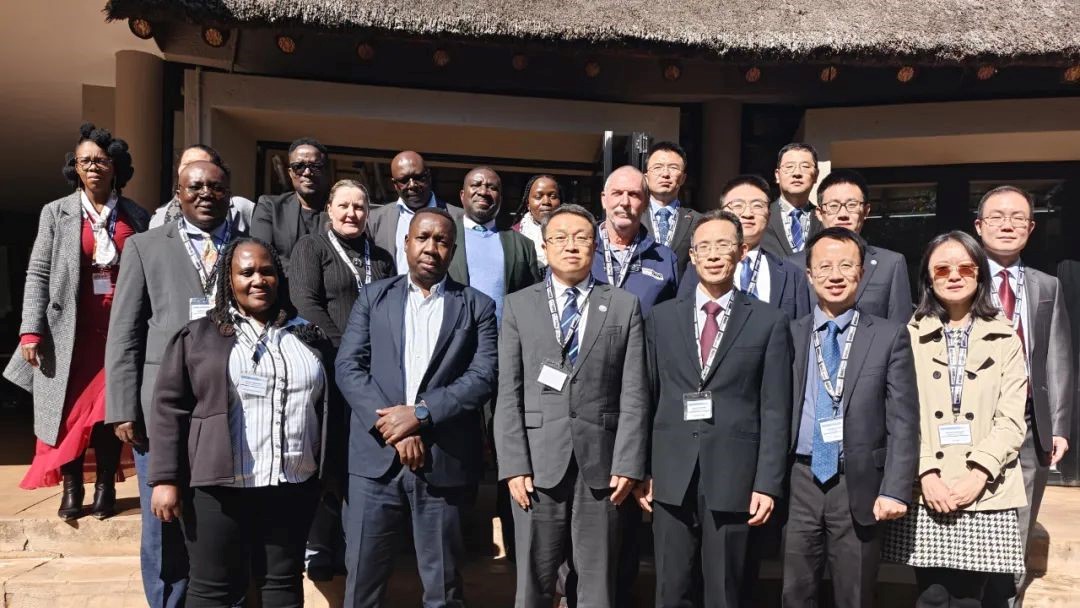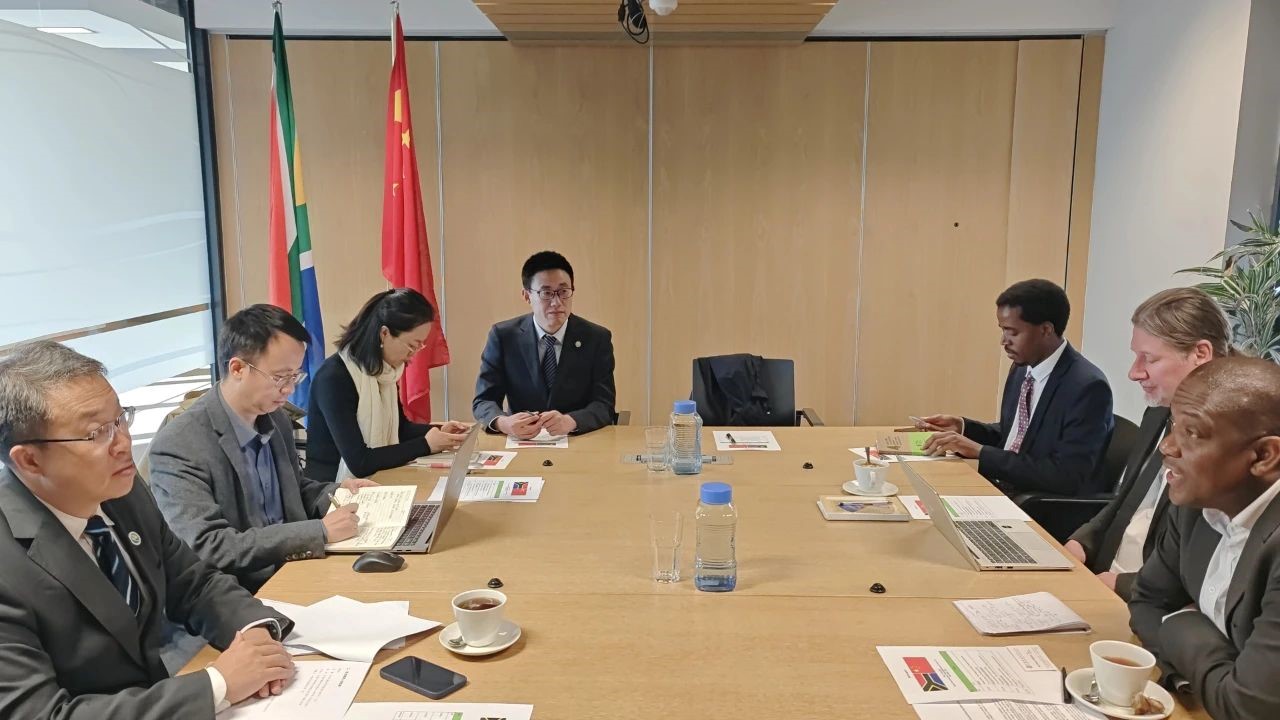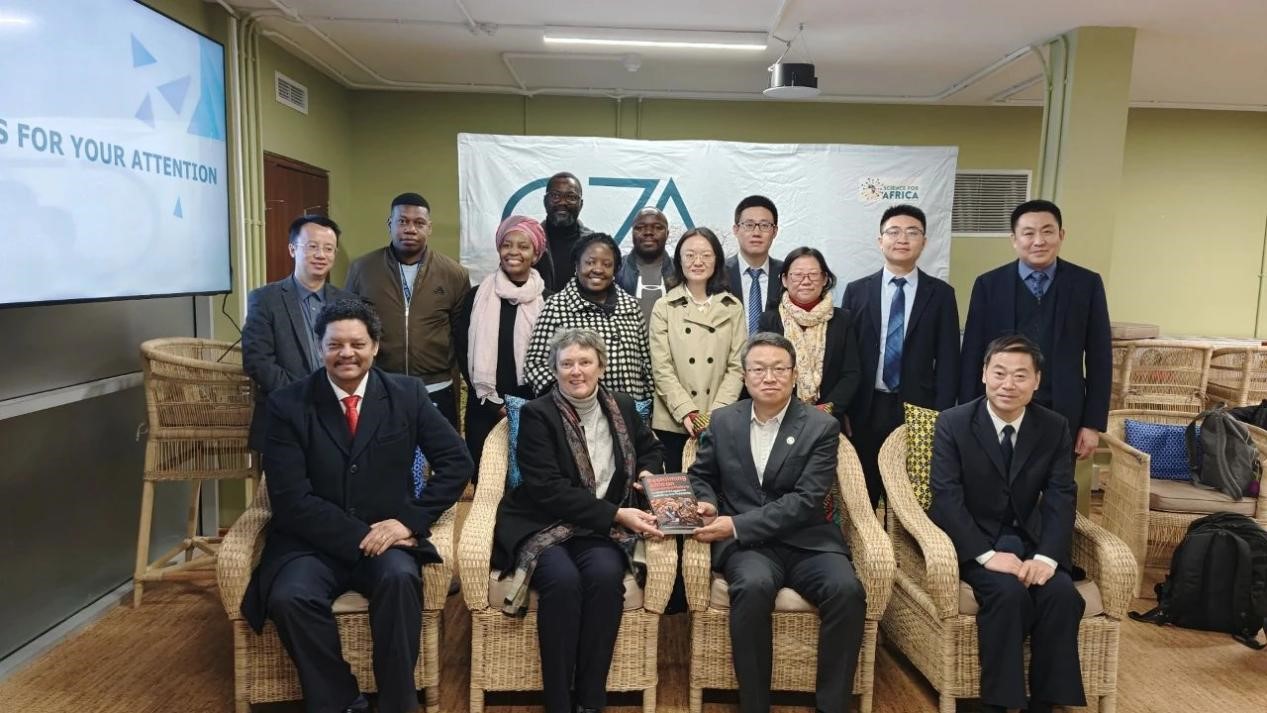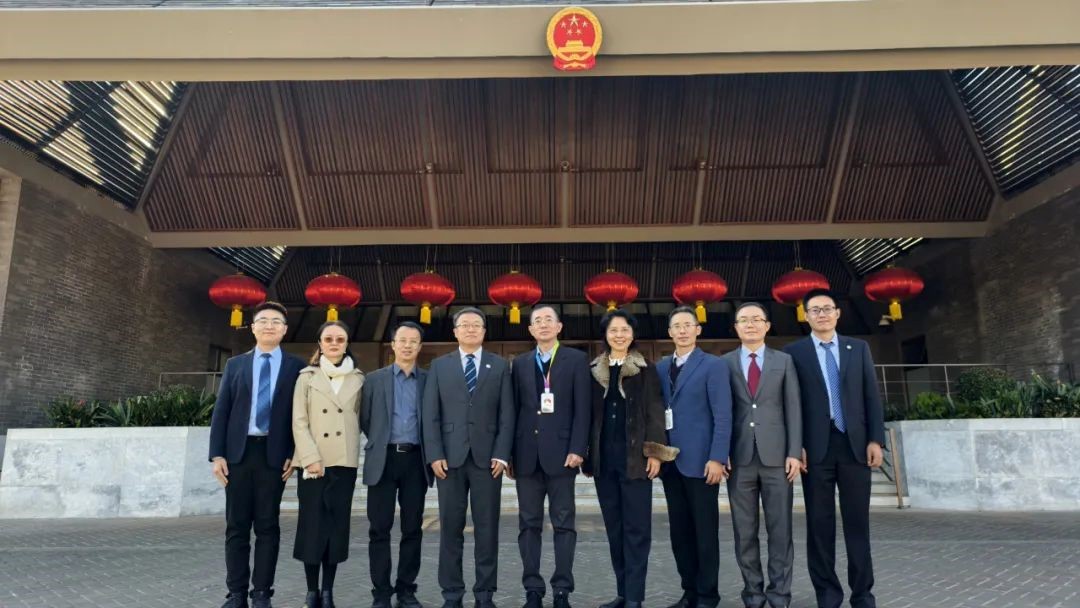
From July 9 to 11, 2025, Dr. Quan Zhanjun, Vice President of the Chinese Research Academy of Environmental Sciences (CRAES), led a delegation to Pretoria and Cape Town, South Africa, for an exchange visit focusing on biodiversity conservation and related fields. The delegation visited the South African National Biodiversity Institute (SANBI), the Department of Forestry, Fisheries and the Environment (DFFE) , and the University of Cape Town (UCT), holding discussions on deepening environmental science and technology cooperation.
The delegation held separate meetings with Mr. Shonisani Munzhed, Chief Executive Officer of SANBI; Mr. Maesela Kekana, Deputy Director-General of the Climate Change, Air Quality and Sustainable Development Branch within the DFFE; Mr. Quinton Johnson, International Office Director at UCT; and Professor Lesley Green, Director of Environmental Humanities South at UCT, among others. They all expressed high appreciation for China's remarkable achievements in ecological environment improvement and ecological civilization advancement in recent years. Through these exchanges, the delegation gained in-depth understanding of South Africa's research progress in biodiversity survey, assessment and monitoring, invasive alien species prevention and control, and economic value accounting of biodiversity, as well as identified their technological needs in air quality management and vehicle emission control.


Dr. Quan noted that China and South Africa, both endowed with rich natural resources and exceptional biodiversity, have seen environmental cooperation become one of the highlights of bilateral engagement. Significant progress has been achieved in clean energy development, biodiversity conservation, climate change response, and desertification control. In recent years, under the leadership of China's Ministry of Ecology and Environment (MEE), CRAES has aligned its efforts with national ecological strategies, conducting fundamental, overarching, and policy-oriented research to bridge the "science-policy-action" system for evidence-based governance. He proposed that both sides leverage this visit as an opportunity to promote the signing of a Memorandum of Understanding (MoU) and further strengthen practical cooperation in joint application for research projects, interdisciplinary environmental-health programs, technology transfer and application, and personnel exchanges. This collaboration shall establish a model for China-Africa cooperation in biodiversity conservation and sustainable development.

During the visit, the delegation co-hosted an academic seminar with SANBI, engaging in in-depth expertise exchange on biodiversity conservation and utilization technologies. The delegation also visited the Embassy of the People's Republic of China in South Africa, where Vice President Quan was invited to deliver a keynote lecture titled "Xi Jinping’s Thought on Ecological Civilization and Natural Capital Value Realization" .

This visit constitutes a key implementation initiative of the MoU on Eco-Environmental Science and Technology Cooperation between CRAES and SANBI. It marks a crucial stride in CRAES's expansion of scientific cooperation with African nations, laying a solid foundation for advancing China-Africa eco-environmental research exchanges and enabling science-driven development of a China-Africa community with a shared future.